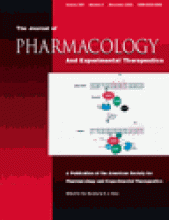Abstract
Caffeic acid phenethyl ester (CAPE) is an anti-inflammatory component of propolis (honeybee resin). CAPE is reportedly a specific inhibitor of nuclear factor-κB (NF-κB). The aims of our study were 1) to evaluate the effect of CAPE on cytokine production, NF-κB, and apoptosis in two cell lines; 2) to assess the effect of CAPE on NF-κB in rats with peptidoglycan-polysaccharide (PG-PS)-induced colitis; and 3) to evaluate the efficacy of CAPE against this colitis. In vitro experiments used rat macrophage (NR8383) and colonic epithelial cell (SW620) lines. NF-κB was evaluated by electrophoretic mobility shift assay. Cytokines and apoptosis were measured by enzyme-linked immunosorbent assay. Colitis was induced by intramural injections of PG-PS into the distal colon. CAPE (30 mg/kg) or vehicle was administered once daily to rats by intraperitoneal injection, for 1 week. Various macroscopic and biochemical indices were measured on day 21. CAPE (30 μg/ml) significantly inhibited NF-κB and TNF-α production in the macrophage cell line. In macrophages, CAPE significantly increased DNA fragmentation. CAPE exhibited generally similar effects in the colonic epithelial cell line. CAPE treatment reduced the mean level of colonic NF-κB in rats. CAPE also induced a significant reduction in gross colonic injury. Moreover, colonic cytokine levels (TNF-α and IL-1β) were significantly reduced in CAPE-treated rats. In summary, CAPE inhibits NF-κB, causes a reduction of pro-inflammatory cytokine production, and induces apoptosis in macrophages. These mechanisms likely contributed to the attenuation of PG-PS-induced colitis by CAPE.
Footnotes
-
This work was supported by the Otsuka Maryland Research Institute.
- Abbreviations:
- CAPE
- caffeic acid phenethyl-ester
- NF-κB
- nuclear factor-κB
- PG-PS
- peptidoglycan polysaccharide
- EMSA
- electrophoretic mobility shift assay
- ELISA
- enzyme-linked immunosorbent assay
- IBD
- inflammatory bowel disease
- The American Society for Pharmacology and Experimental Therapeutics
JPET articles become freely available 12 months after publication, and remain freely available for 5 years.Non-open access articles that fall outside this five year window are available only to institutional subscribers and current ASPET members, or through the article purchase feature at the bottom of the page.
|






